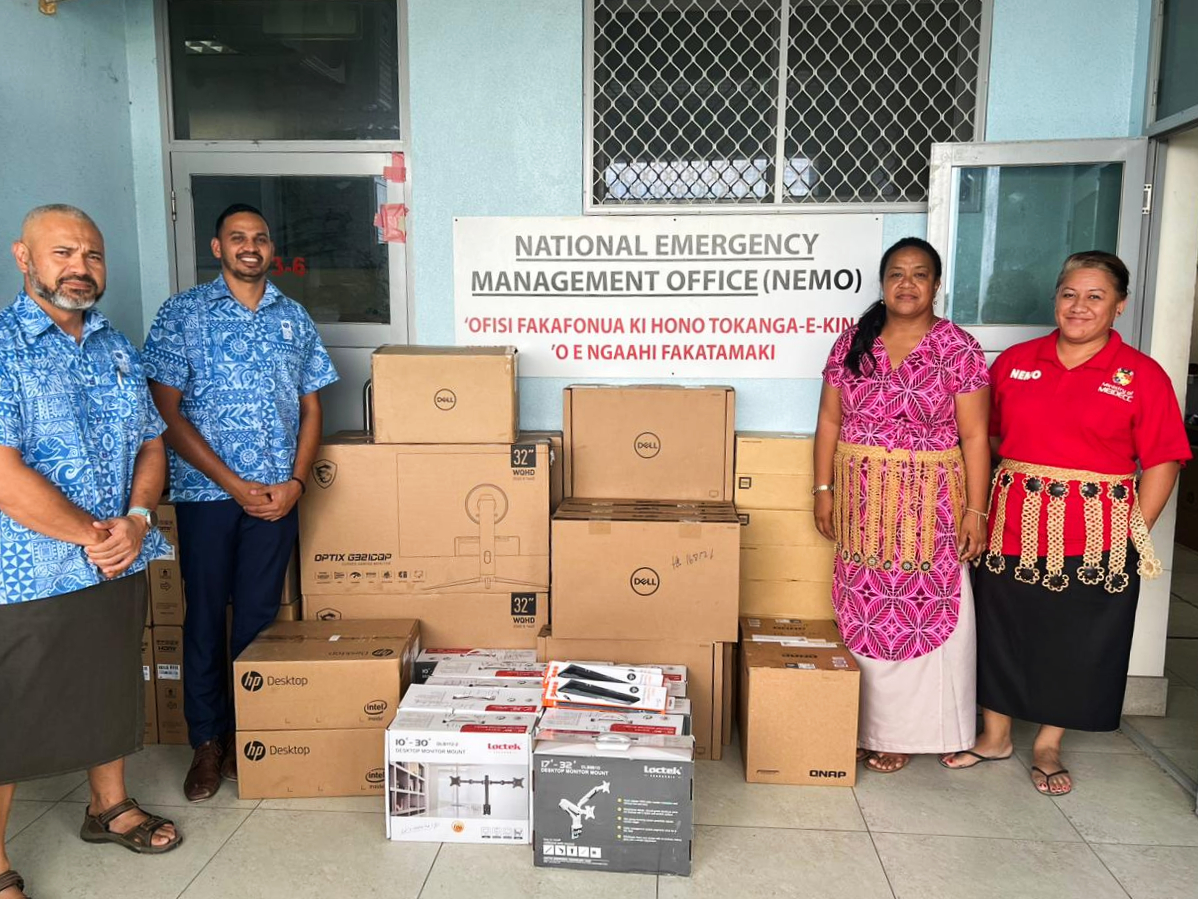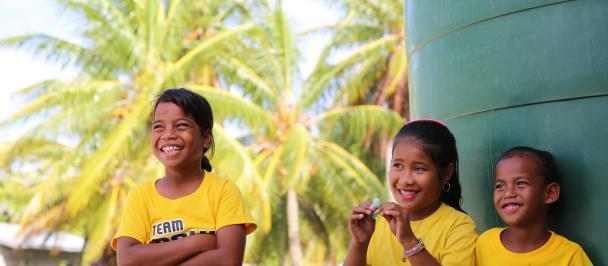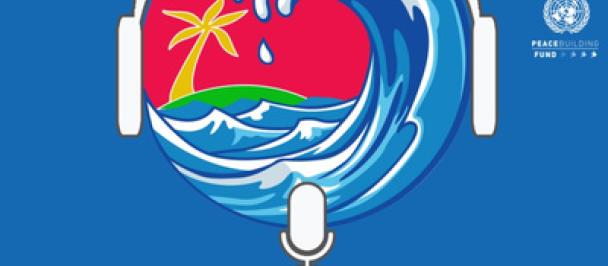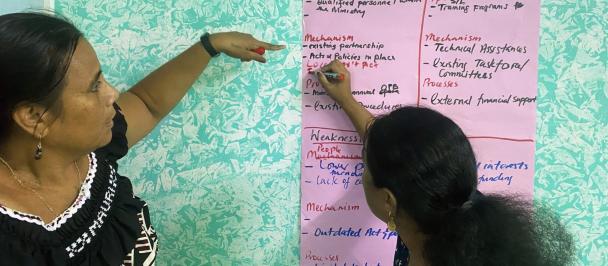Upgrade of ICT equipment to support Tonga Government’s emergency response functions
February 14, 2023

(L-R) Ashley Fua, UNDP Disaster Risk Management Specialist; Sivendra Michael (PhD), UNDP Disaster Risk Management Advisor; Moana Kioa, Deputy Director National Emergency Management Office; Tokilupe Latu, Wharehouse Manager.
Nuku'alofa, Tonga - The UN Development Programme (UNDP) is assisting Tonga Government’s recovery efforts since the Hunga-Tonga Hunga-Ha’apai volcanic eruption and tsunami event on 15 January 2022 that devastated communities and triggered economic damages estimated at US$90.4 million.
UNDP handed over Information and Communications Technology (ICT) and office equipment worth US$55,000 (approximately TOP127,300) to the National Emergency Management Office (NEMO). These equipment include desktops, laptops, monitors and servers, network switches, software programmes and office equipment.
The Chief Secretary and Secretary to Cabinet and Acting Chief Executive Officer for Ministry of Meteorology, Energy, Information, Disaster Management, Environment, Climate Change and Communications, Mr. Paula P. Ma’u said, “The ICT equipment provided by UNDP is critical for the Emergency Operations Center (EOC), which hubs key staff from relevant departments and agencies to effectively coordinate the response functions during disaster situations."
“We rely on timely and accurate information from the EOC to support decision making on the allocation of resources to the affected communities, including sourcing of external support from development partners. The upgrade of the NEOC will further enhance NEMO’s coordination and emergency communication capacities,” added Mr. Ma’u.
UNDP Pacific Office in Fiji Officer-in-Charge and Deputy Resident Representative, Ms. Yemesrach Workie said, “UNDP has a long history of supporting Pacific governments with their recovery efforts and the upgrade of ICT equipment for the NEOC will complement a proposed larger collaboration with NEMO on strengthening institutional systems and governance processes to mitigate, respond and recover from disaster shocks.
She added, “We are also grateful to NEMO for accommodating deployed UNDP personnel who have been supporting ongoing recovery efforts over the last six months. I am aware that the team on the ground has been working tirelessly with NEMO on training officers on how to analyze and review data gathered during the emergency response phase, including the sharing of critical information for quick action by the district and town officers.”
The Acting Director of NEMO, Ms. Moana Kioa was appreciative of UNDP’s support and echoed the importance of development partners working towards risk-informed development projects. She said, “The installation of ICT equipment like the remote servers and complementary software’s will enable NEOC staff to provide essential services despite restricted conditions caused by emergency conditions.”
She added, “UNDP team based at NEMO has been providing ongoing support with the review of the Initial Damage Assessment, the ongoing development of the National Disaster Risk Management Framework, and the provision of in-house training to the team. These activities further support the operationalization of robust preparedness systems, which is critical to building community resilience and more broadly linked to the achievement of priorities under the Sendai Framework”.
The UNDP Tonga Recovery project has been supporting several other recovery initiatives such as (i) restoration of livelihoods through provision of agriculture supplies to 700 affected families, (ii) repairing of the damaged NEMO warehouse in Tongatapu, (iii) restoration of internet connectivity for NEMO, (iv) provision of essential social services through the Rights, Empowerment and Cohesion Project, (v) provision of 200 micro loans at 0 percent interest to support Ministry of Micro, Small & Medium Enterprises reactivation in collaboration with UN Capital Development Fund, and (vi) remittance subsidy of 1 percent for over 5000 transactions (Australian corridor) in collaboration with Tonga Development Bank.
The project is also supporting the revision of Standard Operating Procedures for emergency management, development of National Disaster Risk Management (DRM) Policy Framework, Terms of References revision for cluster coordination, and integration of DRM elements into planning and budgeting functions in collaboration with National Planning and Aid Coordination and Resilience Financing divisions.
Contact information:
Sivendra Michael (PhD), Disaster Risk Reduction Advisor, UNDP Pacific Office. Email: sivendra.michael@undp.org

 Locations
Locations


